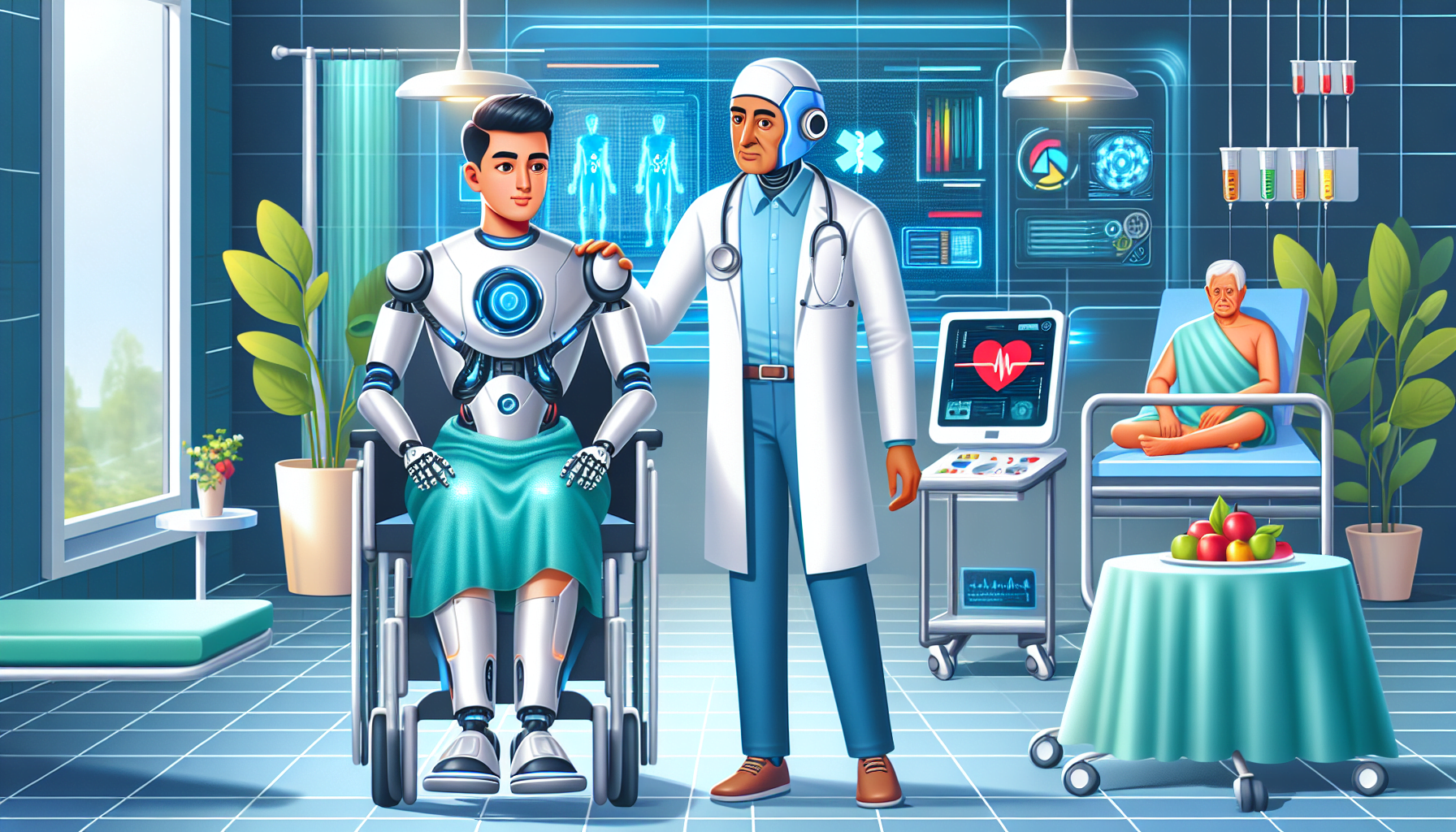AI in Healthcare: Remember the days of waiting weeks for a doctor’s appointment, only to spend countless hours in a sterile waiting room? Or sifting through mountains of medical jargon, trying to decipher your own health records? The healthcare landscape is undergoing a revolutionary transformation, and at the heart of it all lies artificial intelligence (AI). AI healthcare solutions are paving the way for a future where medical care is more efficient, accessible, and personalized than ever before.
AI in Healthcare: The Rise of the AI Doctor
Have you ever wondered how AI is revolutionizing the medical field? From diagnostics to treatment plans, AI algorithms are stepping up to the plate, assisting doctors and empowering patients. AI-powered diagnostic tools can analyze medical images with remarkable accuracy, detecting diseases like cancer at earlier stages when treatment is most effective. These algorithms can process vast amounts of data, identifying patterns and anomalies that might be missed by the human eye. Imagine the impact of early detection on patient outcomes and survival rates! But AI’s role doesn’t stop at diagnostics. AI-powered virtual assistants are transforming patient care by providing 24/7 support and guidance. These intelligent bots can answer basic medical questions, schedule appointments, and even offer medication reminders, ensuring patients stay on track with their treatment plans. For individuals managing chronic conditions or those in remote areas with limited access to healthcare, AI companions offer invaluable support and peace of mind. Artificial Intelligence In Healthcare: Improving Patient Care
AI in healthcare solutions- Personalized Medicine: Tailoring Treatment to You
One-size-fits-all approaches to healthcare are becoming a thing of the past. AI is ushering in an era of personalized medicine, where treatments are tailored to individual patients based on their unique genetic makeup, lifestyle, and medical history. AI algorithms can analyze this data to predict individual responses to medications, identify potential risks, and recommend the most effective treatment options. This level of personalization extends beyond treatment plans. AI-powered wearable devices and smartphone apps can monitor vital signs, track physical activity, and even detect changes in mood or behavior that may indicate an underlying health issue. This real-time data empowers individuals to take control of their health and make informed decisions about their well-being.
The Future of AI in Healthcare: A Glimpse into Tomorrow
As AI continues to evolve, its impact on healthcare will only grow more profound. Imagine a world where AI-powered robots assist surgeons in the operating room, performing complex procedures with precision and reducing the risk of human error. Or consider the potential of AI-driven drug discovery, accelerating the development of life-saving medications for diseases that currently have no cure. The possibilities are endless. However, with this rapid advancement comes the need for ethical considerations. Data privacy, algorithmic bias, and the potential displacement of healthcare workers are all critical issues that need to be addressed as AI becomes more integrated into the healthcare system. Striking a balance between innovation and ethical responsibility is crucial to ensure that AI serves the best interests of patients and healthcare providers alike.
AI in Healthcare: FAQs
AI in Healthcare refers to the application of artificial intelligence technologies in the field of healthcare. It involves the use of machine learning algorithms, data analysis, and predictive modeling to improve healthcare services, diagnosis, treatment, and patient outcomes. AI in Healthcare offers various benefits, such as improved accuracy and efficiency in diagnosing diseases, predicting patient outcomes, and personalizing treatment plans. It can also assist in drug discovery, streamline administrative tasks, and enhance patient engagement through virtual assistants and telemedicine. Yes, there are ethical considerations when using AI in Healthcare. These include ensuring patient privacy and data security, avoiding biases in algorithms, maintaining transparency in decision-making processes, and addressing potential job displacement of healthcare professionals. It is important to have appropriate regulations and guidelines in place to govern the ethical use of AI in this field. Note: Please keep in mind that the given answers are concise and may require additional context or elaboration based on the specific requirements and guidelines of the SERP and rich result guidelines.What is AI in Healthcare?
How does AI benefit Healthcare?
Are there any ethical considerations with AI in Healthcare?
